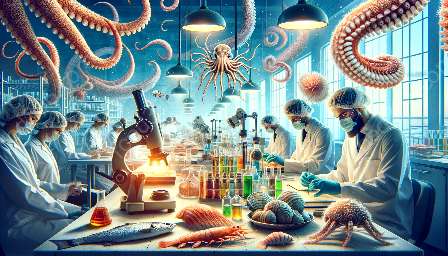Seafood is a vital and highly regulated industry, encompassing a wide range of species and products from across the globe. Compliance with seafood regulatory requirements is crucial to ensure the safety, sustainability, and ethical practices within the industry. This article will explore the intricate relationship between seafood compliance, quality control, and seafood science, shedding light on the complexities and nuances of meeting regulatory requirements.
Understanding Seafood Regulatory Requirements
Seafood regulatory requirements encompass a wide array of laws, regulations, and standards that govern the harvesting, processing, distribution, and marketing of seafood products. These requirements are put in place to ensure the safety and quality of seafood, as well as to promote sustainable and ethical practices within the industry.
The regulatory landscape for seafood is complex and multifaceted, involving international, national, and regional authorities, as well as industry-specific organizations and certification bodies. The key areas of focus within seafood regulatory requirements include:
- Safety and hygiene standards
- Sustainability and environmental impact
- Labeling and traceability
- Import and export regulations
- Animal welfare and ethical practices
Compliance and Quality Control
Compliance with seafood regulatory requirements is intrinsically linked to quality control and assessment. Quality control measures encompass a range of practices aimed at ensuring the consistency, safety, and integrity of seafood products throughout the supply chain.
From the moment seafood is harvested or caught, through processing, packaging, and distribution, stringent quality control measures are in place to mitigate risks and uphold standards. Quality control in the seafood industry involves:
- Temperature control and monitoring
- Sanitary and hygienic practices
- Testing for contaminants and pathogens
- Traceability and documentation
- Product inspections and audits
Effective quality control is essential for maintaining compliance with seafood regulatory requirements. It provides assurance that products meet the necessary standards for safety, quality, and ethical sourcing, thus safeguarding consumer health and confidence in the industry.
Seafood Science and Compliance
Seafood science plays a pivotal role in supporting compliance with regulatory requirements and maintaining high-quality standards within the industry.
Scientific research and innovation drive improvements in seafood processing, preservation, and safety. From studying the microbiological risks associated with seafood to developing new packaging technologies that extend shelf life, seafood science contributes to advancing compliance and quality control measures.
Furthermore, seafood science informs the development of analytical methods for detecting contaminants, pathogens, and adulterants in seafood products. These analytical tools are essential for verifying compliance with safety standards and ensuring the authenticity and integrity of seafood in the market.
Conclusion
Compliance with seafood regulatory requirements is a multifaceted endeavor that intersects with quality control and seafood science, influencing the safety, sustainability, and integrity of the industry. By understanding the complexities of regulatory requirements, embracing rigorous quality control measures, and leveraging scientific advancements, the seafood sector can continue to thrive while meeting the evolving demands of consumers and regulators.
By prioritizing compliance, quality, and science, the seafood industry can build trust, safeguard public health, and contribute to the responsible stewardship of marine resources for generations to come.

